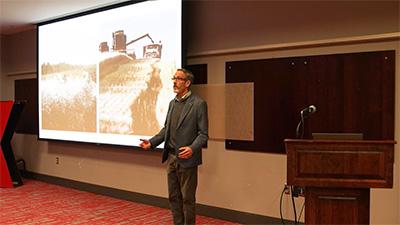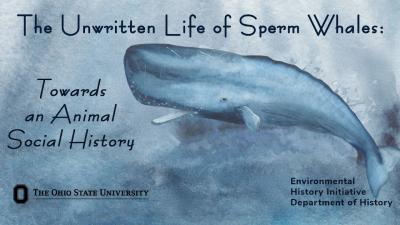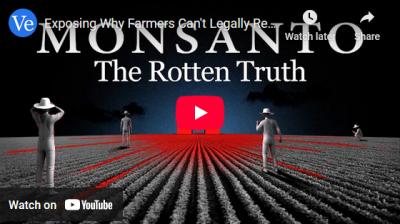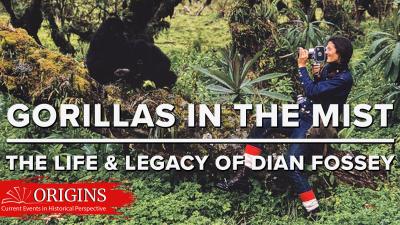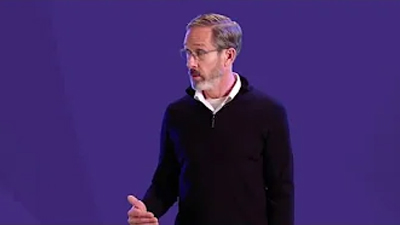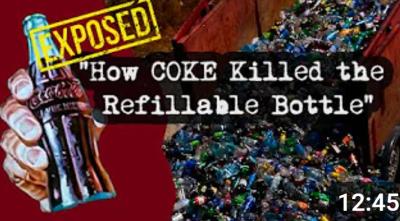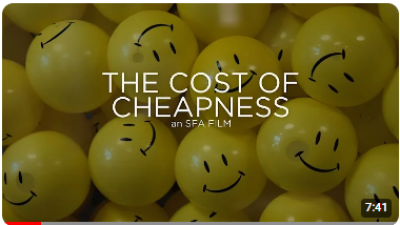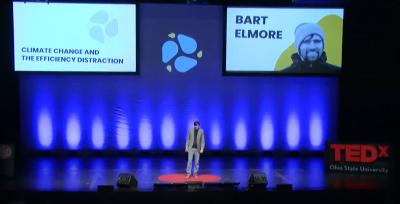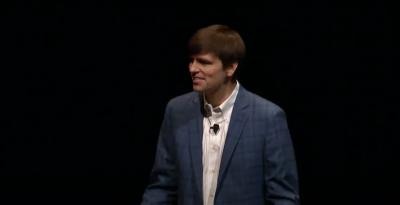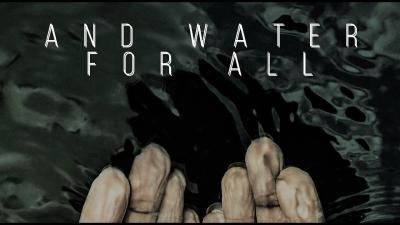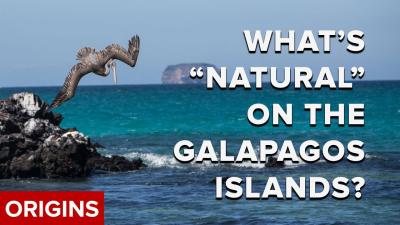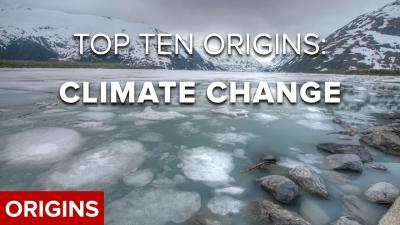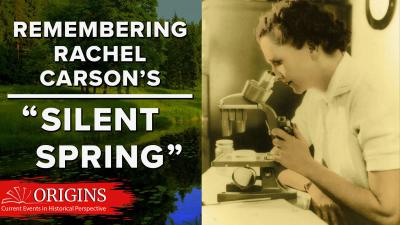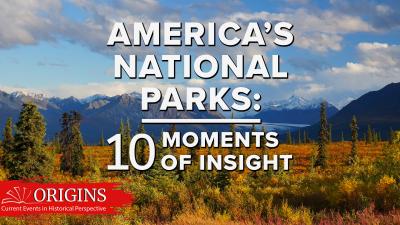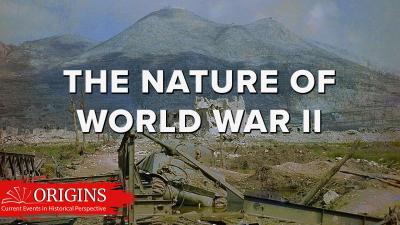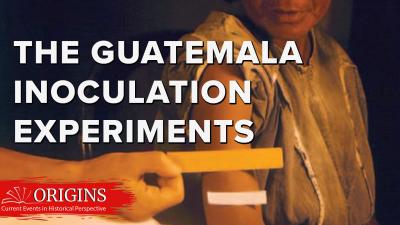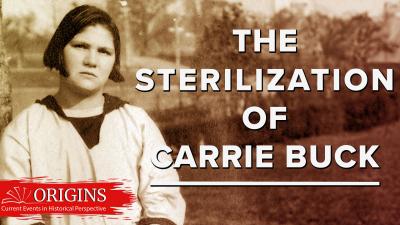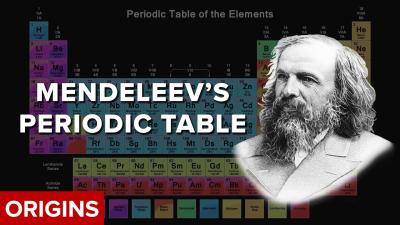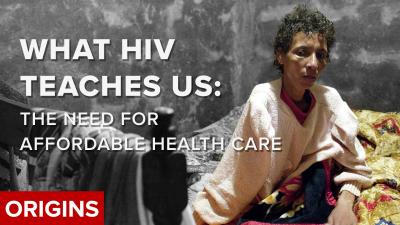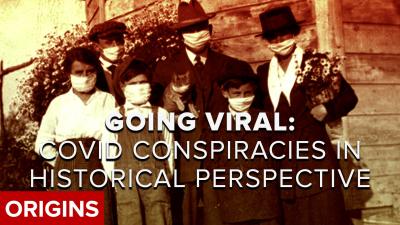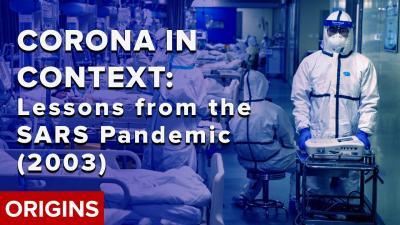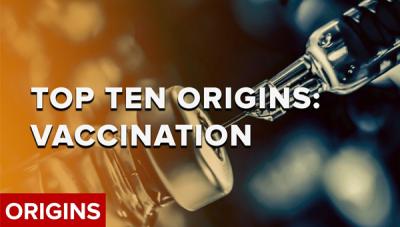Films and Videos
50 years of effort, ambition, and demand, yet the alternative food movement has struggled to find substantial success. Why? We’ve forgotten about the farmer. In Kip Curtis’ talk, he outlines the importance of placing the economic success of farmers at the center of the alternative food movement; demonstrating this hypothesis through his success in Mansfield, Ohio. Professor Curtis specializes in Environmental History and Studies with research and teaching foci on mining, environmental ideas, and food systems. He teaches undergraduate and graduate courses in modern United States history and environmental history and offers independent studies in environmental history and the environmental studies and sciences.
Featuring Thomas Fleischman, associate professor of German and environmental history at the University of Rochester.
In 1954, Aristotle Onassis—Greek shipping magnate, playboy, and millionaire—sent a whaling fleet, known as the Olympic Challenger, to Antarctica. What followed was the most well-documented illegal catch in modern history, preserved through correspondence, catch ledgers, and eye-witness accounts. Like most histories of whaling, however, this is a story told only by humans. Recent advances in whale science, combined with novel theories of animal intelligence, suggest this history was documented by whales too. This talk asks what it would look like to write the history of industrial whaling from the perspective of a whale? How can studies of sperm whale social structures, migrations, language, and environment, combined with artifacts and primary sources of industrial whaling, produce a new kind of social history for the non-human world?
Thomas Fleischman is the author of Communist Pigs: An Animal History of East Germany’s Rise and Fall, published in the Weyerhaeuser Environmental Books series at the University of Washington Press. He is currently knee-deep in the research and writing of his next book, tentatively titled The Whaling Olympics: Aristotle Onassis and the Destruction and Survival of the World’s Last Great Whales.
This event was presented by the Environmental History Initiative in the Department of History at the Ohio State University.
Based in part on research from Professor Bart Elmore's book, "Seed Money," a new documentary, "Monsanto, the Rotten Truth: Exposing Why Farmers Can't Legally Replant Their Own Seeds," produced by Veritasium, explains the history and impact of Monsanto's herbicides.
Fossey replaced a fallacious stereotype of a King Kong-like, violent gorilla with an almost idealized image of a gorilla that was intelligent, family-oriented and peaceful.
How does one achieve social justice? In this TEDx Ohio State University talk, Kip Curtis explains how land grants can lead the way to justice and empowerment in the 21st century.
Kip Curtis is an Associate Professor of Environmental History in the Ohio State University’s Department of History and a 2020/2021 Faculty Fellow in the University Office of Outreach and Engagement. He has written and published on the history of mining, on the history of environmental ideas, and he is co-authoring a forthcoming history of humans on earth (2022). His current project focuses on what he calls “histories of the future,” where he has imagined an urban food production system and then developed a grant to launch it. Working at the intersection of racial justice and ecologically-minded economic development, Curtis has partnered with the North End Community Improvement Collaborative and their Executive Director, Deanna West-Torrence, to launch a microfarming cooperative in Mansfield that captures food dollars that once left the state and redirects them into households and neighborhoods in their community that need them.
Once upon a time, Coke’s bottles were an environmentalist's dream: stylish glass bottles washed and reused over and over, leaving no pollution. Today CocaCola is the world’s biggest plastic producer and polluter. What happened? Watch our new investigative short documentary "EXPOSED: How Coke Killed the Refillable Bottle"
The story of Bentonville, Arkansas, Walmart, and how Sam Walton leveraged his knowledge of rural areas and federal government projects to build a retail empire. A film by Ethan Payne for the 2023 Southern Foodways Symposium. SFA FILM MISSION SFA films document the lives of foodways practitioners, including cooks, farmers, waiters, and a wide range of folks whose work uplifts, revolutionizes, and diversifies the Southern foodways canon.
Dr. Bart Elmore explores how business executives’ emphasis on improving efficiency in operations can distract them from the hard work of radically reducing greenhouse gas emissions, and challenge us to consider what we can do as individuals to address this dilemma. Bart first became passionate about environmental justice while trekking and paddling through the woods and streams of North Georgia. He soon discovered he wanted to be an educator when teaching in Savannah, Georgia, and then went north to study environmental history, which he now teaches with an eye towards finding lessons from the past that can create a more ecologically sustainable future. This talk was given at a TEDx event using the TED conference format but independently organized by a local community.
Bartow Elmore speaks about how the solution to the current plastic waste problem lies in the history of one of the biggest enterprises in the world: the Coca-Cola industry. Bart Elmore studies the past in order to understand how we can live more sustainably on this planet. A native of Atlanta, Georgia, Bart is assistant professor of environmental history and a member of the Sustainability Institute at Ohio State University. He is the author of Citizen Coke: The Making of Coca-Cola Capitalism (W. W. Norton, 2015), a global ecological history of the world’s biggest soft drink brand. From 2016 to 2018 he was a Carnegie Fellow at the New America Foundation in Washington, DC, and he currently serves as the the editor of the Histories of Capitalism and the Environment book series at West Virginia University Press. He is writing two new books: Seed Money: Monsanto’s Past and the Future of Food (W. W. Norton, forthcoming) and The Land Where the Sun Never Sets: The American South and Global Ecological Change (UNC Press, forthcoming).
...And Water For All is an educational documentary about water affordability in Ohio. The film aims to amplify the voices of those who work toward providing clean, affordable water for all. Even though the movie is set in Ohio, many of its lessons will be relevant for those concerned with water affordability in other places. This project was made possible by the support of the School of Environment and Natural Resources and the Ohio Water Resources Center at The Ohio State University.
In geologic years, the Galapagos Islands are infants. Located on the perpetually moving Nazca tectonic plate, the islands were formed through repeated volcanic activity. Layer by layer, the islands have risen off the ocean floor, forming a chain that is approximately five million years old. Find out more in this video written by David Bernstein and narrated by Nicholas Breyfogle.
There is perhaps no greater challenge facing humanity (and all species on the planet) than climate change. This video explores the top ten most important things you should know about it.
Written by Professor Sam White. Narration by Patrick Potyondy.
A Top Ten Origins Video. In the midst of a migration crisis in Europe and strident talk by some American politicians about Mexican immigrants coming to the United States, people around the world are resorting to an old strategy: building walls. Historically, walls have a decidedly mixed record in achieving their goals to keep some people in and other out. While good fences may make good neighbors, as the old cliché has it, neighborliness has not been the reason behind most of history’s major wall projects. Here is a look at some of the most famous of these insular architectural projects.
Rachel Carson’s Silent Spring shocked the American public when it was published in the summer of 1962. Carson hooked readers by describing a fictional town where spring no longer marked the singing of birds, the buzzing of bees, or the laughter of children.
Here, David Harmon offers ten “Moments of Insight” that he has had in the parks over the years. The list should be understood as a representative sample of the kinds of introspective experiences the parks offer, rather than as a ranking of the best—something that really is impossible, since all of us bring different sets of values and expectations to our national park experiences.
World War II was a total war—a mobilization of nearly all human and natural resources. That meant it was also a war that shaped and was shaped by nature.
The Guatemala inoculation experiments entailed a series of human rights violations that reminds us of the dangers involved in allowing scientific knowledge and national security to justify what the New York Times called, in 1947, “ethically impossible” actions.
Eugenics boards in 33 states oversaw the sterilization of thousands of people between 1907 and 1977. Nearly all were classified as “feebleminded” and the procedure was often performed against their will or with coerced consent.
Early in 1869, Russian chemist Dmitrii Mendeleev was in a predicament many people are familiar with—he was facing a deadline. He had delivered the first volume of his inorganic chemistry textbook to his publisher but was struggling with how to organize the second volume.
This struggle would culminate in a remarkable discovery, a system that classified all of the chemical elements.
HIV and COVID-19 have both laid bare that stark racial disparities exist in population health and in access to quality medical care in the United States.
As national governments and the global scientific community struggle to contain the spread of the coronavirus, they have also spent the last few months confronting a different type of outbreak.
Misinformation about the current public health crisis—which has either denied the existence of the virus entirely or framed it as an intentional product—has proliferated at an alarming rate. It has also enjoyed the most mainstream attention of any conspiracy theory since the 9/11 truther movement.
As the world grapples with the ongoing pandemic of COVID-19, it is important to remember that this is not the first but rather the seventh human coronavirus that scientists have discovered since the mid-1960s (four of which just cause a common cold in humans).
Australian scientists have been successful in growing the Wuham virus in a lab, increasing the possible development of a vaccine for the Corona virus. Just what do we know about the history behind the creation of vaccines? Find out the most important things to know in "Top Ten Origins: Vaccination" written by Dr. Christopher Otter. Narration by Dr. Nicholas Breyfogle.

